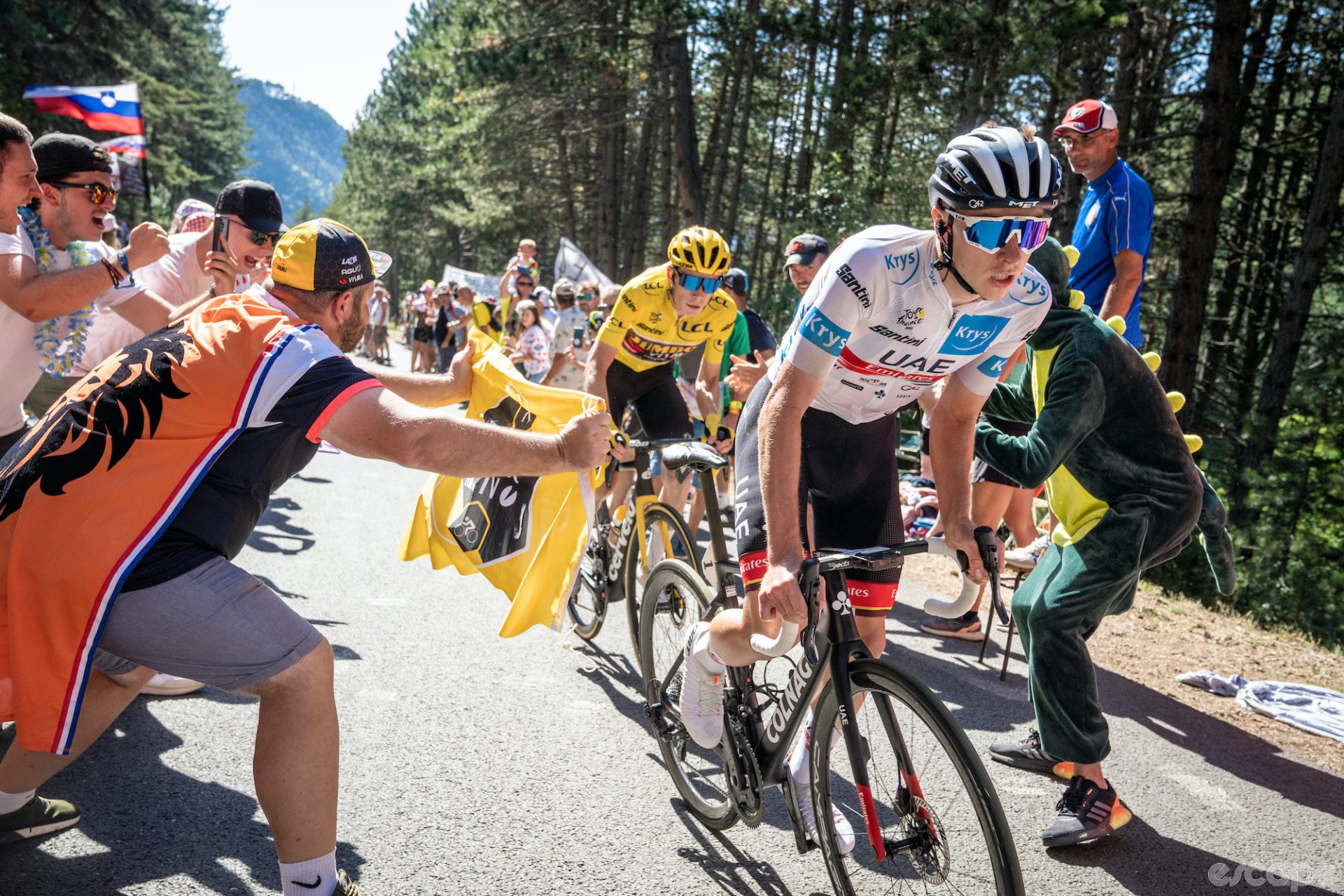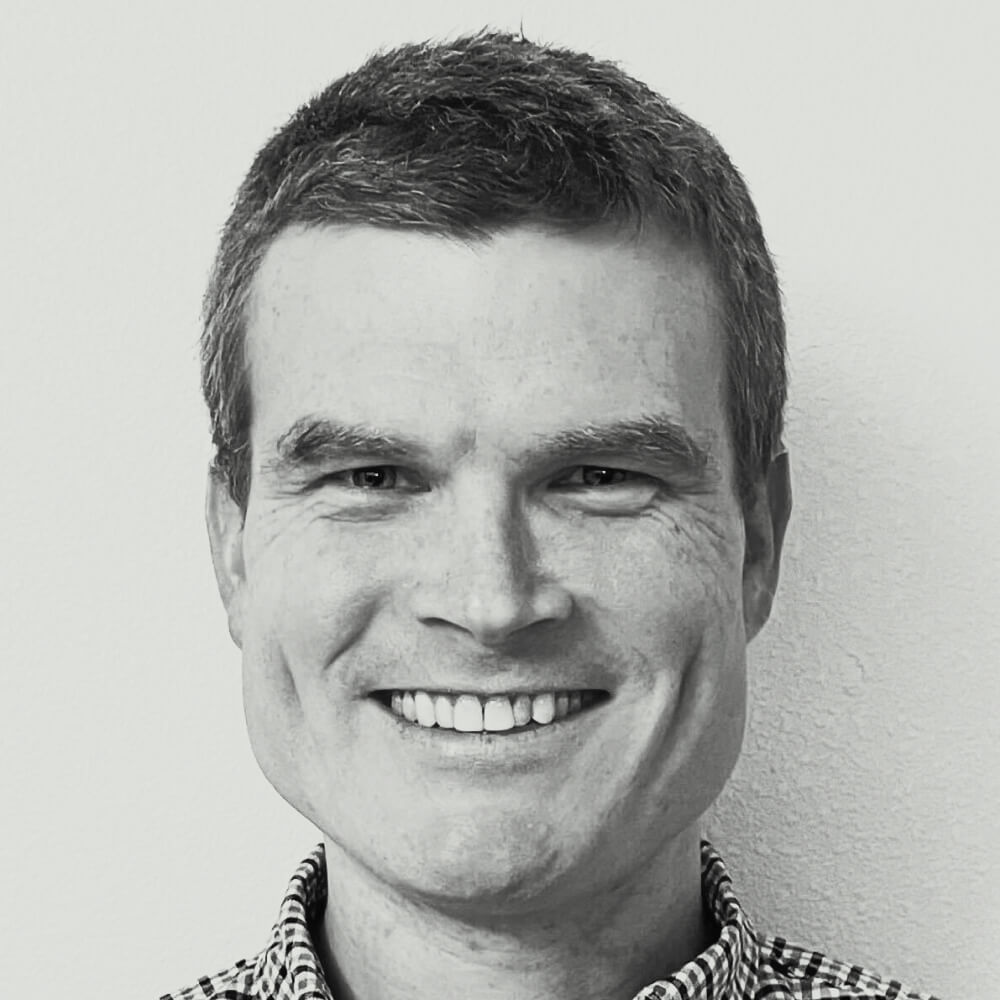It’s a time-honored tradition. Every July, an expert climber will emerge while riding in support of a more established teammate, and Tour de France fans around the world will begin to ponder … could he lead a yellow-jersey campaign of his own?
Sepp Kuss comes to mind. And Wout Poels before him.
Every so often, the Grand Tour apprentice does indeed go on to become the Grand Tour master, proving up to the task of meeting the massive expectations set by a huge domestique ride in the mountains. Think Greg LeMond and Chris Froome. And yet, countless others come up short.
What is it, then, that separates those talented would-be GC stars from the ones who actually make good on the promise they showed as Grand Tour domestiques? As with so many big questions, it’s complicated, with both physical and psychological differentiators between the helpers and those who actually don pink, yellow, or red.
For starters, there are inherent differences in the physical demands of being the last rider pulling a teammate up the Alpe d’Huez and being the one who actually soars to victory on the iconic French climb.
Most obviously, Grand Tour winners are often just … better. In some cases, it really is as simple as that. Only the absolute best climbers – who are also at least pretty darn good on the TT bike – can actually win a given Grand Tour. Sometimes, it can take a few chances at leading a team’s three-week charge for the reality of one’s skillset to really set in for both the rider and the fans.
That said, those skills that make for a great domestique aren’t quite the same as those that make for a Grand Tour contender. There is plenty of overlap, which is part of the reason why the best teams so often land multiple domestiques into Grand Tour top 10s behind their leaders, but those leaders often have an edge when it comes time to max out the watts-per-kilo at a mountaintop finish.
“A domestique – you’re always going to want someone that can ride steady for long periods, whereas a winner is going to, in addition to that, have a sort of explosive kick to them,” says Jonathan Vaughters, himself a former pro, now the team manager at EF Education-EasyPost. “If you really want to get down to it, you’ll see a lot of times great domestiques have great aerobic capacities, but their glycolytic power development is not as good as the leaders’.”
They are just as strong but not as sharp in key moments, in other words.
Drafting behind a teammate can only help so much on the double-digit gradients in those final few hundred meters of a mountain stage; the moments that often decide a stage race. And so, a would-be champion has to be able to make the decisive moves regardless of how many domestiques are around.
Laurens ten Dam, who played both GC leader and domestique at varying points in his career, sums up the power demands of those final-kilometre pushes succinctly: “When I was a domestique, I never came to a finish where I collapsed on the finish line.”
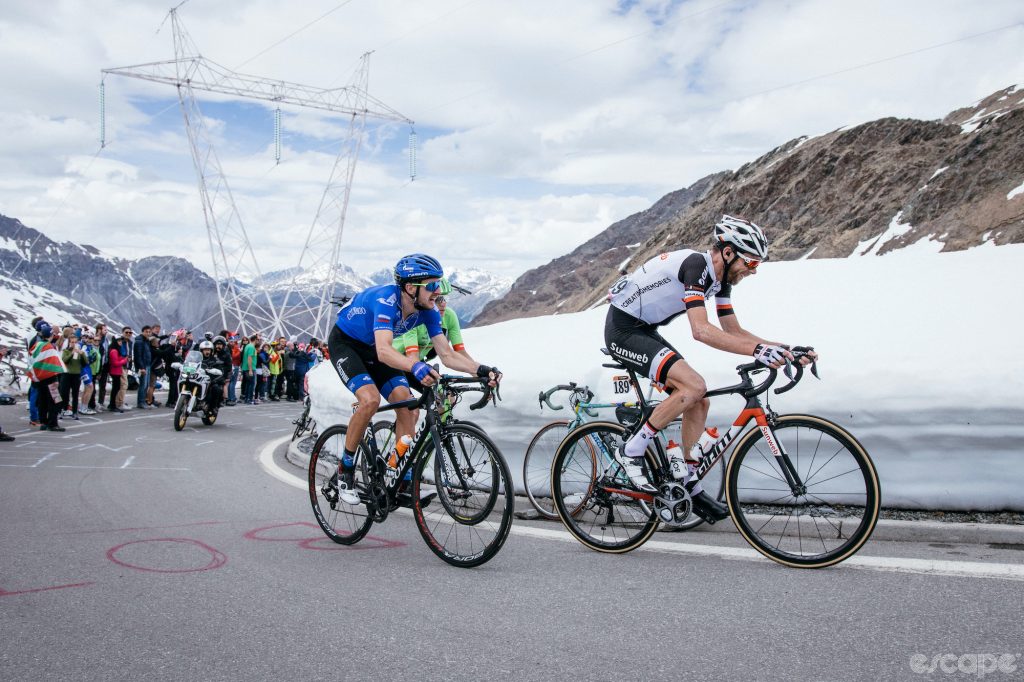
Another critical characteristic that any Grand Tour winner absolutely must have is consistency. A contender’s jour sans can sink a Grand Tour bid. From one day to the next, a three-week winner can never really take a day off. Some riders are more physically capable of that than others, recovering from challenging efforts more quickly.
The way so many riders and staff see things, however, the ability to avoid bad days often comes down to more than physical gifts. It is here that another great separator comes into play: The psychological demands of winning a Grand Tour are different from the demands of being a domestique.
“Being there for 21 days, being there on the sprint stages, the mountains, or the TT days – that’s like a day off for the domestiques – the mental demands of a Grand Tour for a leader are way bigger than for a domestique,” says Ten Dam, who rode to three Grand Tour top-10s in his career before shifting into support roles, helping Tom Dumoulin to a Giro d’Italia title in 2017.
“If I did a Grand Tour as a leader, I would be mentally so involved every day that the week after the Grand Tour I had trouble sleeping still, because I would feel so much stress going on in my head,” Ten Dam says. “When I came out of the Giro that Tom won, I slept like a baby afterward.”
These pressures affect different people in different ways. Certain riders are wired to thrive under the circumstances of being a leader. Others are not.
“Some people need pressure to perform at their highest physical level; other people loathe pressure,” Vaughters says. “Some people will just turn themselves inside out to win. Others, they just want to do a job well done and then that’s that. They don’t have that need to win. It’s a different psychology even if the physiology isn’t that different.”
That mentality might see a Grand Tour contender push through the dreaded jour sans when one of his helpers might ease off the throttle and save strength to help out on another day. After all, those helpers will be more valuable to their teammates if they can be fresh again a few days down the road.
“What I find is that leaders know how to kill themselves through a bad day,” Vaughters says. “Like it’s so imperative that they’re a winner and a leader that they will fight through a horrible day and still be up front, whereas those with a domestique mentality that maybe have the same physiology, they kind of just let off the gas. Like, ‘Oh, not my day, I’ll do my work for the team leaders early on in the race and let someone else do the really late climby stuff and I’ll let off the gas and ride with the third group.'”
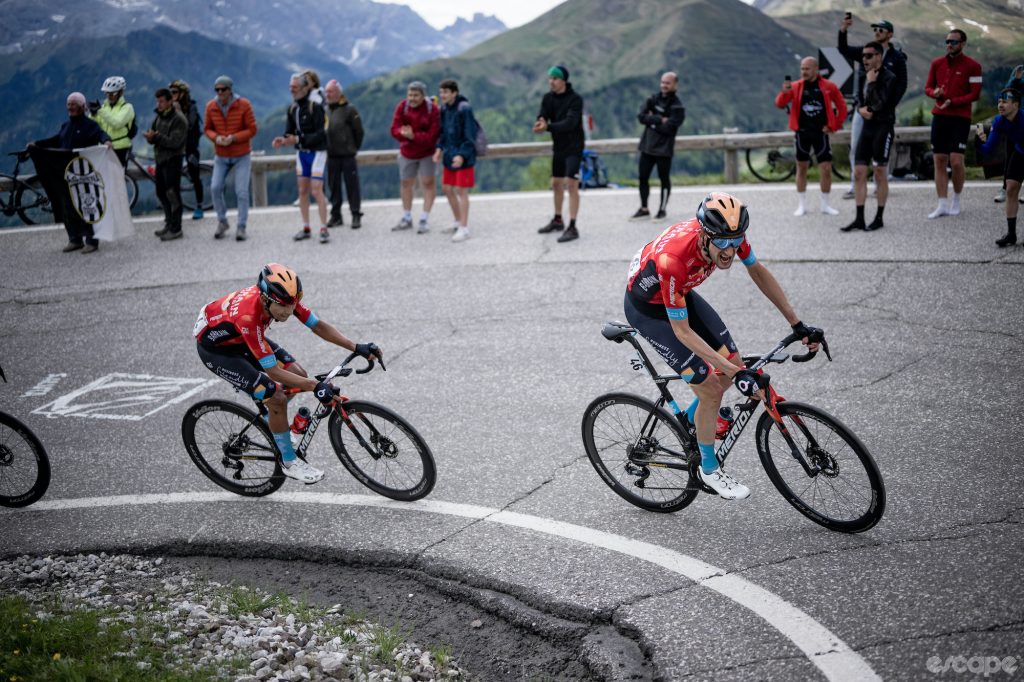
The psychological side of the equation also includes that unquantifiable but no-less-important attribute that oh-so-many Grand Tour champions have in spades: a killer instinct. That’s not to say that all of those GC hopefuls who have never won the big one lack a killer instinct. Try telling Wout Poels, a Liège-Bastogne-Liège winner, that he lacks a killer instinct just because his Grand Tour aspirations haven’t come to fruition. In the end, that killer instinct is just one piece of the puzzle, and there are plenty of riders who have it but who have not become three-week champions.
A similarly unquantifiable and nebulous piece of the puzzle is what is probably best described as “leadership ability,” which can certainly be a great tool in marshaling teammates in pursuit of a GC goal. Joxean “Matxin” Fernández, sports manager at UAE Team Emirates, points to Tadej Pogačar as a strong example of someone who possesses this ability in spades.
“A leader doesn’t demand special treatment just because he’s a champion,” Matxin says. “Tadej is a good example. He is a leader who values his teammates, his staff. A leader wants to win, but he also values the people around him.”
For Ten Dam, those who have had experience being domestiques in the first place may be better placed to give their teammates the appreciation they deserve for the support they provide.
“I was a domestique for Denis Menchov at the beginning of my career – I think that also helps, because then you’re on the other side,” Ten Dam says. “Then you know how the domestiques feel.”
Those who lack the ability to rally their domestiques can put themselves at a disadvantage.
“It’s difficult to give everything for someone who is kind of a dick, maybe,” Ten Dam says. “I think a leader needs to realize that and create a good atmosphere in the team. If you like each other, [you do] the last 100 meters on the climb a bit more easily.”
Then again, leadership is still just another piece of a puzzle, perhaps not necessarily even an absolute requirement. There have been more than a few Tours where the winning margin was so great that it’s hard to imagine the champion losing just because he pissed off a teammate or two with a tactless comment.
All told, the differentiators can make for a sprawling mosaic of both physical and psychological traits – and it can be hard for a rider or a rider’s team to really know whether someone possesses the right collection of traits to be a winner until they’re actually given a chance. That’s why so many teams keep rolling the dice.
The Sky/Ineos juggernaut has provided examples at both ends of the success spectrum. Tour winners Chris Froome and Geraint Thomas spent years in support of others before rising to the top. Things have not quite gone the same way for riders like Wout Poels. No one can take that Liège-Bastogne-Liège title away from him, of course, but in the three-week department, Bahrain Victorious was probably hoping for more than the single Vuelta a España top 10 he has picked up since signing there.
As for the riders themselves, there is obvious allure to the idea of being an anointed Grand Tour leader. Who wouldn’t want to be seen as a potential Tour winner?
Then again, the domestique life has its perks. Embracing the different demands of being a support rider – and enjoying the benefits – has made careers for some, or greatly extended them for others.
Take Michał Kwiatkowski, a world champ and Monument winner whose extremely versatile skillset seemed to destine him for greatness from a young age. By his late 20s, however, he was getting more TV time as a super-domestique in the Sky train than as the GC racer he once reportedly showed interest in becoming.
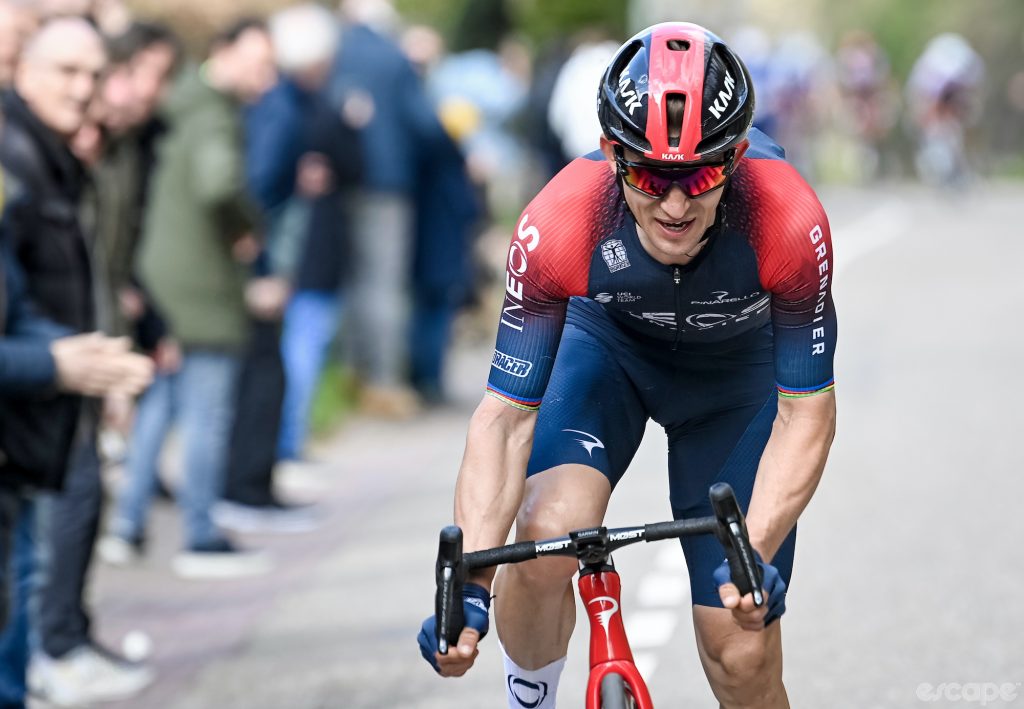
Kwiatkowski’s own Grand Tour ambitions never really worked out. Given his palmares, that was almost certainly not down to a lack of TT ability or killer instinct. More likely, it was his ability to ascend Alpine climbs with the very best for multiple days in a row that was in question. That hasn’t stopped him from becoming a premier player in the Ineos train, and likely a well-paid one at that.
Riders and teams that can balance ambitions and put talented riders to work for each other tend be pretty successful. That’s easier when a team’s Grand Tour leader is an obvious choice for the role. A rider like Kwiatkowski’s Polish compatriot Rafał Majka, a two-time King of the Mountains at the Tour, will have an easier time playing second fiddle to a Tadej Pogačar.
“If you ask him to work for Tadej Pogačar, there’s no discussion possible,” Matxin says of Majka. “It’s accepted from the beginning and he knows perfectly well that there is a column for racing for himself – like he has done in the Vuelta a España or the Tour of Slovenia etc. – and his career has another column of being an indispensable man for a great leader; [for] a great champion like Tadej Pogačar.”
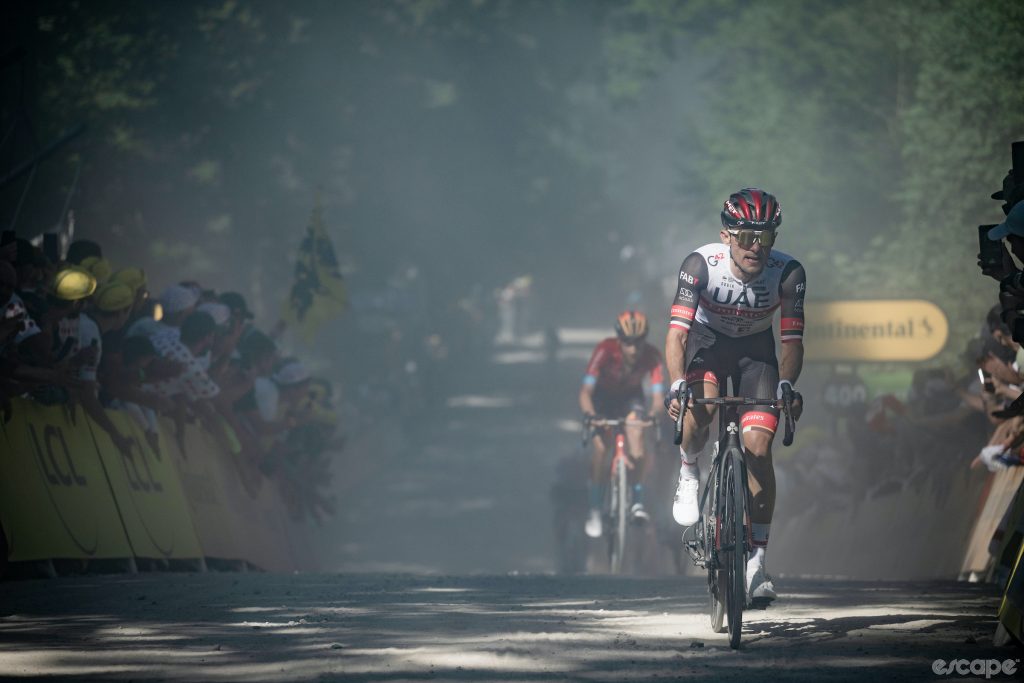
What’s more, it’s not as if Kwiatkowski and Majka are only ever domestiques these days. A Grand Tour super-domestique can still hunt stages in the stage races and aim for big one-day victories in the Classics.
“Those roles are way less defined in modern cycling than they were 30 years ago,” Vaughters says. “The hierarchy in any team isn’t as concrete. There are guys that come into form and can win races and so you use them as a race winner, and when they’re a little off boil, you use them as people who can work for others. The roles shift around.”
With that in mind, it makes a bit more sense why so many talented all-rounders keep signing up to take on support roles at the likes of Ineos, Jumbo, and UAE. At the end of the day, they’ll still get some chances of their own, maybe even on a stage or two of the Tour itself, without quite the same stress levels associated with leading a Grand Tour charge. Most of them are paid handsomely, too.
Has the appeal of being a well-compensated domestique potentially robbed the sport of a possible Grand Tour winner here or there? Maybe. Every so often, that promising domestique that the fans think might be the next Tour winner actually does turn out to be one. For all those who try and fail, however, the frustration is only compounded by the weight of public expectation.
All things considered, bypassing the frustration for steady employment, the joy of helping your colleagues succeed, and occasionally getting your own chances outside of the biggest stage races, makes plenty of sense. In short: the super-domestique life is not a bad gig if you can get it.
What did you think of this story?
